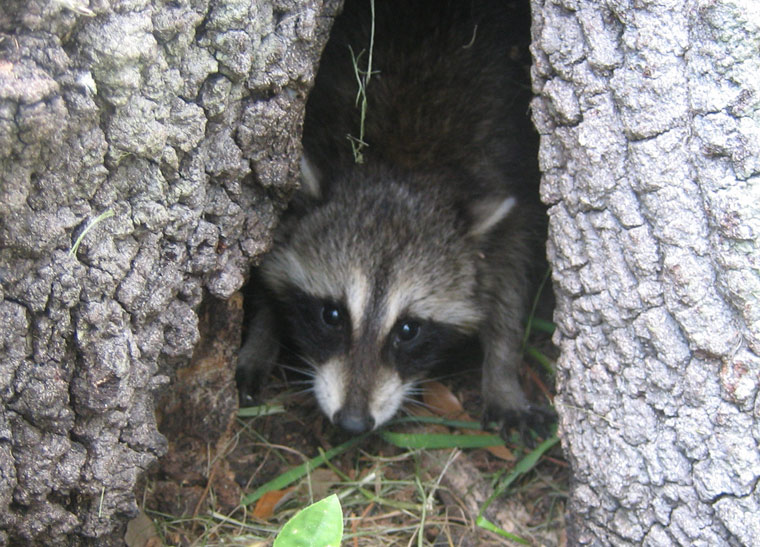- info@wildlife-removal.com
Call us for help in your town
Wildlife Removal Education
Raccoon Repellents – Pros Versus Cons
Need raccoon removal in your hometown? We service over 500 USA locations! Click here to hire us in your town and check prices - updated for year 2020.
You will find that there are a wide range of raccoon repellents on the market. Just a quick internet search will provide you with results that look a little bit like this:

Also read about:
How to keep raccoons away
Buy raccoon repellent
What Attracts Raccoons?
High Frequency Sound Devices for Raccoons – Do They Work?
Ultrasonic raccoon repeller — $10 — $100
Anti-raccoon spray — $30
Ammonia solution — $30
Sprinkler systems — $50-$300
Electronic fencing systems — $100 — $1,000+
DIY black pepper repellents — $5 (per week)
There are A LOT of so-called raccoon repellents. We're going to take a closer look at each of them right now, giving you BOTH sides of the story — the pros and the cons.
Ultrasonic Raccoon Repellents - Pros:
They promise to not only get rid of raccoons, but other nuisance wildlife too, and they don't use any chemicals or kill-actions, making them a humane approach.
Designed to give off a high-frequency sound that people can't hear, but wildlife can, encouraging that wildlife to get away from the area the noise hits.
Not the most expensive raccoon repellent out there.
Ultrasonic Raccoon Repellents - Cons:
You'll need to consider the long-term costs — is the device solar-powered? Will it use batteries? How many? If it's mains-operated, how much extra will it add to your energy bill.
Some people CAN hear the high-pitched sound given off by these devices. You'll soon find out if your neighbor is one of them.
The cheaper ones don't tend to be as good as the more expensive, high-tech models, and you will usually waste money on the latter before then paying out again for the former.
Some of them will only cover a certain area, such as an average-sized room. If you have more than that specific area to cover, you will need to purchase more than one device.
Different models will take varying lengths of time to work. In private experiments, some deterrents have been shown to drive away raccoons in just a week or so, others taking three or more weeks to have any effect at all.
There have been various and numerous studies to show that these ultrasonic raccoon repellents do not work, not just for raccoons, but also for other wild critters they are said to target.
There is a chance that you will encourage raccoons to delve deeper into your home, rather than out of it. When you're using an ultrasonic raccoon repellent machine, you have no control over where the animal ends up.
Anti-Raccoon Spray – Pros:
It's probably one of the cheapest options, and you will also find the spray available in many places on the internet, as well as sold in local stores.
If you didn't fancy a spray, there are normally alternate granule options available.
These raccoon repellents are designed to get rid of the animal by way of taste or smell aversion — something tasting or smelling bad enough to drive the creature away.
Anti-Raccoon Spray – Cons:
You will need to keep reapplying the spray and this will drive the cost up. The longer you use it, the more it will cost you.
Continuing with the above point, the longer you use something that is designed to deter something, the less effective it becomes. The raccoon can get used to or comfortable with the smell or taste that it once didn't like, much in the same way that people can.
Ammonia Solution – Pros:
There really aren't any. In most cases, the ammonia-soaked rags or solution kills the creature or knocks it out, rather than drive it away.
Ammonia Solution – Cons:
This so-called raccoon repellent actually has the potential to do an awful lot of damage to other animals, and probably won't even target the one animal you are trying to get rid of. Cats, dogs, and even children have all fallen prey to the nasty side effects of exposure to ammonia. It is not a method that we can recommend or advise.
In fact, as you can probably tell, there are more cons than pros for almost all of the raccoon repellents you will come across. Some of them might work for a while, but will usually lose their effectiveness after a short period of time. The longer you use these repellents, the more expensive they become, and the less chance you have of them working too.
We can't recommend any repellents to you as far as raccoons are concerned, with the exception of wildlife eviction fluid, which can, in some cases, help to drive female raccoons out with her young. Read more about how to keep raccoons away.
Go back to the Raccoon Removal page, or learn tips to do it yourself with my How to Get Rid of Raccoons guide.


















